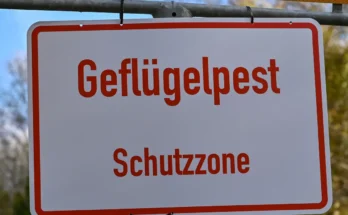“ We keep changing dimensions », Timothée Lacroix, Chief Technical Officer, or technology director in France, of Mistral AI agrees. The recent record-breaking raise of 1.7 billion euros in a funding round led by ASML (Advanced Semiconductor Microprocessor Lithography), a Dutch supplier of chip manufacturing equipment, makes France’s leading artificial intelligence (AI) company the first decacorn of French Tech, as the company is valued at 11.7 billion euros.
And since its launch two years ago, facing stiff international competition, the startup co-founded by Arthur Mensch, Timothée Lacroix and Guillaume Lample, which specializes in large language models for business (although the company has also developed a conversational robot aimed at the general public Le Chat), is moving forward at full speed to conquer new territories.
End-to-end sovereignty?
Mistral AI notably struck a partnership this year with Nvidia to launch a European cloud offering, just as the company developed its first data center in France with French company Eclairion. This will soon be a highlight at Essonne. “ This allows us to have control over some of our computing resources and not depend, to a large extent, on American partners for those resources. », explains Timothée Lacroix. Moreover, ” having infrastructure on European soil, controlled and operated by European entities, is reassuring in the current geopolitical context », he added.
But should data centers be considered on a European scale? “ If computing capacity is located somewhere, it must be shared more publicly for the investment to be effective “. Therefore, it is necessary to “ think about investments on a larger scale than the physical location “.
From there, imagine complete chain sovereignty, down to the chip? “ There’s a huge depth of skill between what, for example, ASML does to achieve what goes into our data centers and how it’s built, and all the software behind it. If you don’t master a particular section and don’t immediately become an expert in Europe, it’s not a big deal. There is a lot of development on the chip side in Europe. We will test and see what is most effective for us at the right time. “. Meanwhile, data center projects must involve American chips…
Technology optimization
Furthermore, Mistral is also working to overcome other technological challenges. The model memory is one. In this field, there is complexity, especially the problem of prioritizing information, says Timothée Lacroix. Example, ” if I have no luck in asking a question about a popular song title in conjunction with a substantive question, then I will get a reminder about my interest in popular music », he illustrates.
Likewise the reuse of computational work, in other words, the ability of a model during its reasoning to decide for itself whether a piece of code or text can be generated for later use. “ Currently, the work process or calculations carried out by an agent are often only on a conversational scale. This needs to be more long term “, he explains. Which also allows reducing the energy costs of the model… In short, ” there is a lot of optimization to be done “.
To achieve a more efficient model, do we need to go further? Some observers believe that the LLM model itself, the transformer (deep learning architecture) that launched the generative AI revolution, has run out of steam. “ It is possible that there will be new architectures that are much more efficient and allow training and inference to be done faster and cheaper. This is a very interesting area of research. », considers the CTO of Mistral AI.
Enterprise-scale platform
Regarding the new wave of AI agents, autonomous systems whose current effectiveness remains disappointing, Timothée Lacroix is reassuring. “ If we take the definition of an agent as a model with well-defined tasks that we can potentially integrate into workflows to carry out more complex things, today’s models are mostly capable of doing a lot in today’s companies, even on very complex tasks. What is missing is not the model, but the tools “, he emphasized.
Between this, between models and infrastructure, the goal, with agents and AI, is to open up the capacity of creation in business to a wider audience than software engineers, developing the technical director of Mistral AI which, moreover, has just launched a production platform for AI applications.
Of course, Mistral AI chooses to focus on businesses rather than the general public. “ We focus on the business because that’s where we create value and see complex use cases to automate. », Confirms the tricolor decacorn CTO. But at a time when OpenAI will become a platform and gateway to the web, potentially redefining the digital economy, could such a path be considered for a French AI star? “ Conversational interfaces are, by their very nature, a very attractive entry point because they are easy to learn and, given the power of the language, we want to do everything with them. », comments Timothée Lacroix.
However, ” if we talk about gateways to other things, in business, for example – agents developed and accessible via Chat, because this is where employees will ask questions about internal manuals or databases “. Obviously, the Mistral line remains the platform of the entire company.


